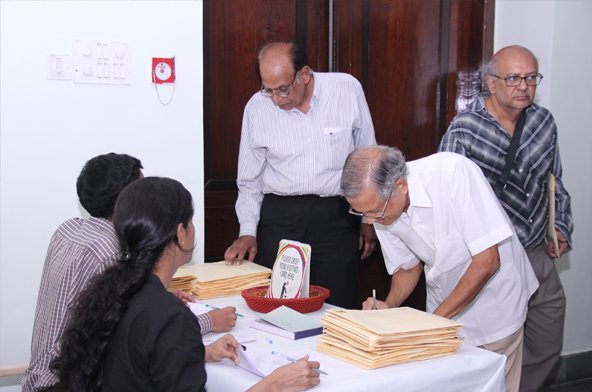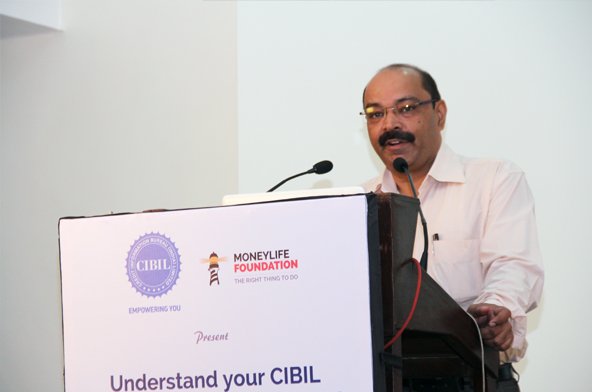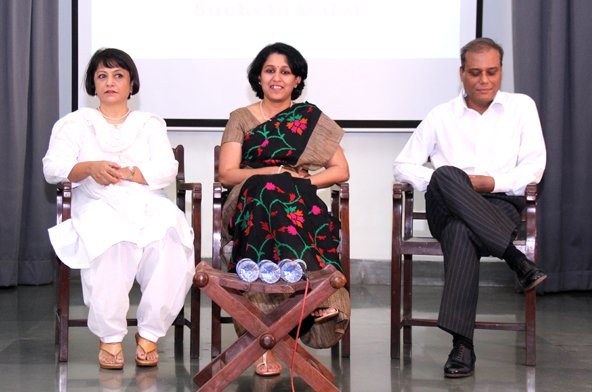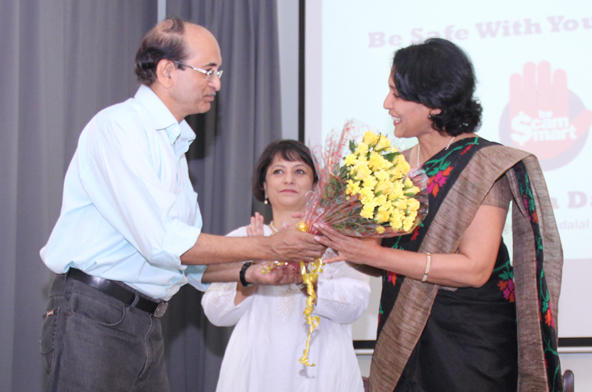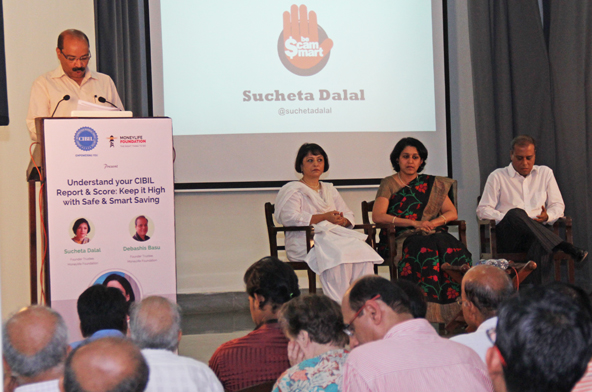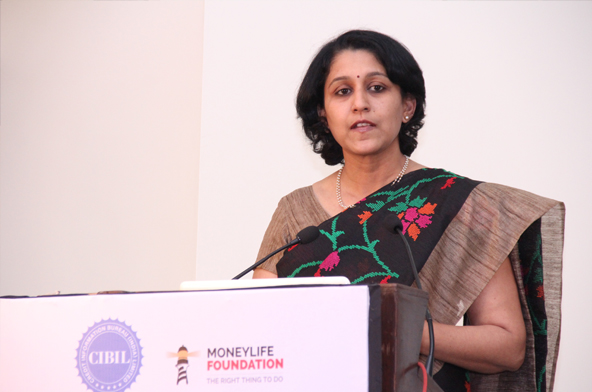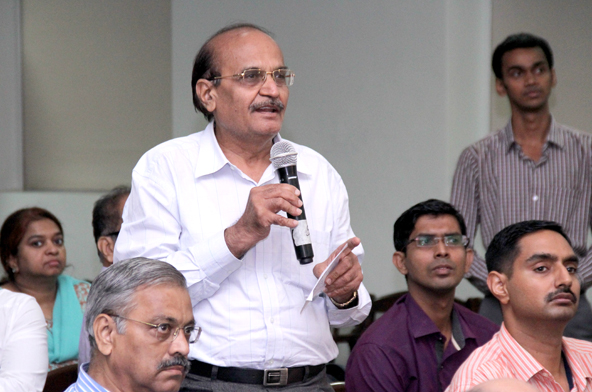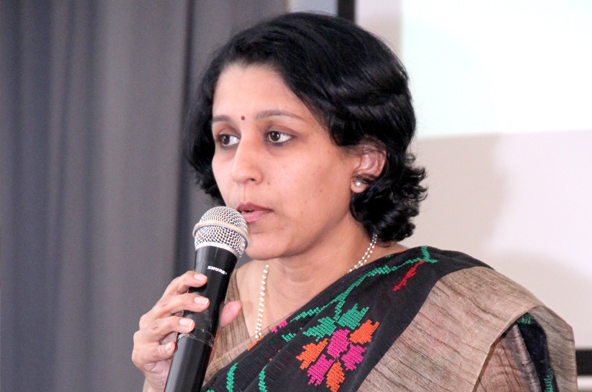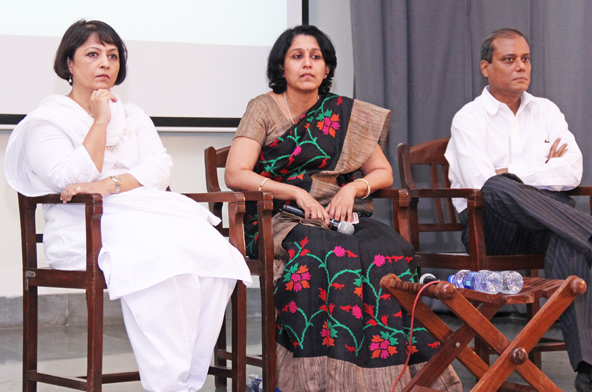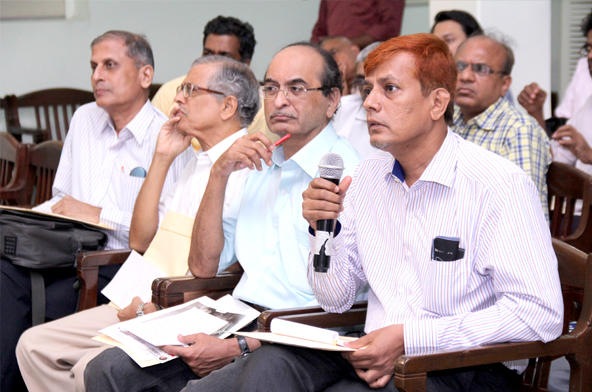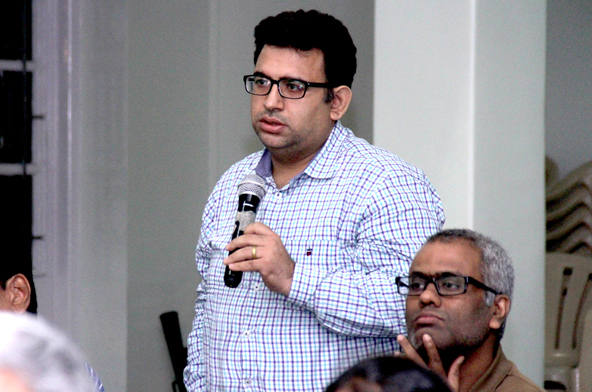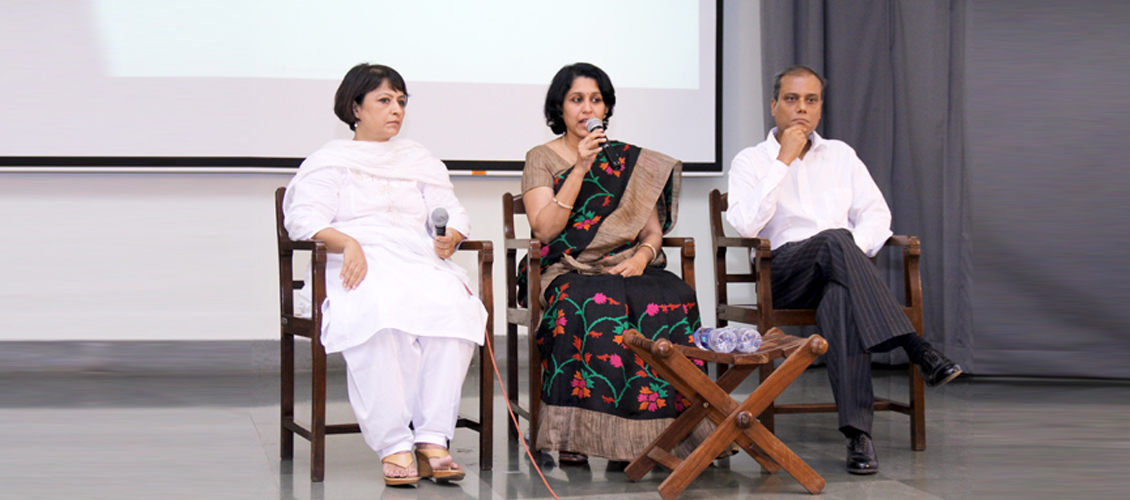
Technology solutions and apps can transform citizens’ access to civic services and governance as shown by Nashik Municipal Corp. Mumbai and other cities too can use similar app-based platforms to transform governance and ease lives of citizens, say experts at a panel discussion organised by Moneylife Foundation. These experts have developed private apps to offer solutions to everyday issues and to help build communities.
The experts include Umesh Jain, Founder of AasPaas, Chetam Temkar, Founder of SmartShehar and Prof Avkash Jadhav, nominated municipal councillor at the BrihanMumbai Municipal Corp (BMC). Prof Jadhav also explained initiatives of the municipal corporation and provided some perspectives on why citizens need to participate more actively in civic governance in order to make it effective.
Mr Jain, a technology expert, said AasPaas is an app-based neighbourhood engagement platform that connects all stakeholders such as citizens, administration officials, civic bodies, elected representatives and non-governmental organisation (NGOs). “Our objective is to help build stronger communities and enable quicker resolution of civic issues, better governance and effective delivery by NGOs too. It is like a Mohalla on Social Media,” he added.
While the app is ready, AasPaas plans to start a pilot project for community engagement at Bandra, very shortly. His idea is that the app would not only allow citizens to engage with municipal authorities, but will also be the go-to destination to discover entertainment, sports events, social gatherings and fun community events in the neighbourhood.
Mr Temkar, who, after working with several Fortune 500 companies has returned to India from the US, provided his broader views on concept of SmartShehar. He says, “We can re-imagine ‘Smart Cities’ through a series of mobile phone apps that will allow you to ease commuting, crowd source information, report complaints, connect with other like-minded citizens, log events and so on. This has transformational implications across urban planning, agriculture, education and transport planning.”
For example, Mr Temkar says when someone opens the SmartShehar mobile app in Mumbai, he will get basic information like location, nearest railway station, city bus stops as well as fares to reach the station. In addition, he said, on the app, one can raise specific issues that are then forwarded to the authorities for redressal. “We would really love to have the authorities responding to such queries, grievances online. But as we know, most government offices still prefer the document submission, we have given this option as well for the users. User can take a print out and submit it to the authorities. If the issues are resolved, then the user can close it. There are several NGOs that are willing to take issues that remain unresolved after certain time,” he added.
SmartShehar already has successful apps to know about BEST and railway routes, which have received wide coverage.
Mr Jain also highlighted the role played by NGOs in such app based platforms to improve governance. Replying to a question asked by Prakash Joshi, one of the attendees, Mr Jain said AasPaas apps helps connect citizens who wants to volunteer and the NGOs who are looking out for such help locally.
The session was attended by several activists and concerned citizens leading to an interesting discussion. A key question was how to get people more engaged. Prof Jadhav correctly pointed out that apps should not give citizens the impression that they can merely complain at the press of a button on their smart phones, there is a crying need for people to participate in the democratic process. Echoing this view, Mr Temkar said, while there were endless complaints about lack of amenities or proper services, most citizens have not made the effort to file a single complaint.
Another activist asked whether smart corporators and aspiring corporators could use the apps effectively to engage with their wards and constituencies. Replying to this, Prof Jadhav said, he had shared the app-based platform initiatives with some of the corporators from across the party line, and received good response. “They (the corporators) are very much interested in such developments, but due to time constraints and pre-engagements, may not be present for today’s session,” he asserted.It has been around 12 years since Credit Information Bureau (India) Ltd (CIBIL), the country’s first credit bureau started its operations. However, there still are several myths, and apprehensions among people about functioning and the role played by credit bureaus like CIBIL as well the credit score. To demystify such myths and explain easy ways to improve the credit bureaus for becoming responsible borrowers, CIBIL along with Moneylife Foundation and Softcell Technologies held a seminar in Mumbai.
The speakers included Harshala Chandorkar, Chief Operating Officer (COO) of CIBIL, Sucheta Dalal, Managing Editor of Moneylife magazine and Debashis Basu, Editor & Publisher.
The first session began with Ms Dalal speaking on the mistakes that affect your financial life and how to keep money safe from financial mistakes, Ponzi schemes, email fraud etc. Many have lost huge amounts of money in pyramid, Ponzi, multi-level marketing (MLM), chain marketing and chit funds such as Herbalife, Amway, Saradha, Rose Valley, SpeakAsia, Gold Quest or QNet. Many are oblivious of how costs and compounding interest can impact borrowings or investment. Several people want to have a credit card and do not even read the terms and conditions, especially the interest rates and charges that are usually in the range of 40% to 65%. Looking at the increased use of credit reports, credit history of borrowers and credit scores by lenders, Ms Dalal said one needs to be really careful in financial dealings, especially while availing and repaying any loan or credit card. This is because, not paying EMIs or credit card dues on time and, in full, can make the person a defaulter in the credit bureau records and disallow him any kind of credit for seven long years, she added.
Lured by high returns, many invest in corporate fixed deposits. Similarly, many opt for fixed deposits of co-operative banks, which pay a higher interest as compared to nationalised banks. Unfortunately, unaware of the risk involved, many have ended up losing their money in such fixed deposits. Mr Basu in his session explained that to save and invest smartly, one needs just a few products. Based on one’s financial goals, investment horizon and tax bracket, they should invest in a mix of equity and fixed income products. Not to forget, make the power of compounding work to your benefit. So, be safe as much as possible, as early as possible, in the right products, he said.
Ms Chandorkar, the COO of CIBIL provided some facts about the credit bureau. She said, founded in 2001, CIBIL has a membership base of over 2,000 comprising credit institutions like banks, financial institutions, non-banking finance companies (NBFCs) and credit card companies. “CIBIL operates in two segments, consumer bureau and commercial bureau. The consumer bureau hold credit information of about 500 million individuals, while commercial bureau has information of businesses and hold about 22 million records,” she said.
Ms Chandorkar then explained in details, various sections from a CIBIL credit report and how to read and understand it. A CIBIL report contains information in sections, like personal information, accounts (held by the entity), and enquiries performed (for obtaining credit)… “However,” she said, “A CIBIL credit information report does not show information like savings account, transactions details on your cards, investments like mutual funds, stocks or insurance and utility payment details.”
The COO, who is a member of the pioneering team that established credit information infrastructure in India, then informed the audience about the credit score methodology used by CIBIL. She said that if the CIBIL credit score ranges between 300 and 900, it indicates probability of default. “While high score indicated that the individual is very likely to pay all loans on time, low score means there are more chances of defaults,” she said.
Explaining the parameters used in a CIBIL credit score, Ms Chandorkar said, “There are four basic components with difference weightage in a CIBIL credit score. Past performance has a weightage of 30%, while, credit type and duration as well as leverage has a weightage of 25% each. Rest 20% weightage is based on other factors.”
According to the COO of CIBIL, 79% of the loans approved are for individuals with a CIBIL TransUnion score that is greater than 750. Anyone can purchase his/her CIBIL TransUnion score either one time (Rs550 per report) or regular subscription. CIBIL offers two subscription, bi-annual, where the individual can obtain two score reports in a year for Rs800 and quarterly subscription that provides four score reports at Rs1,200 during the 12 months period.
Ms Chandorkar then demystified some common myths about the credit bureau, like CIBIL is a defaulters list, CIBIL rejects loan application, CIBIL blacklists an individual and CIBIL should make changes on its own in the database. She said, none of the statements are true. CIBIL is not a defaulters’ list, neither does it reject loan applications nor does it blacklist anyone. “Credit applications are accepted or rejected by lenders and not by CIBIL and since it is only a repository, it cannot make any changes in the database. It is the lenders who can make changes in their records that are submitted to credit bureaus,” she added.
Several borrowers, especially defaulters are under the impression that once their ‘account’ is deleted from CIBIL, they can obtain fresh loan or credit cards. Ms Chandorkar said, “Accounts cannot be deleted from the CIBIL report. If you have closed the account it can be updated as closed account by the bank. If there are any inaccuracies in the credit report, the consumer can raise a dispute and can then get those corrected.”
There are many credit ‘repairing’ firms that promise to remove for a fees the ‘settled’ remark from a CIBIL report. ‘Settled’ is a status reported on the loan account when the customer has partly paid the dues on the loan or credit card.
“However,” the COO of CIBIL said, “this status cannot be changed unless the customer pays back all the dues and the loan or credit card is closed. Once the dues are paid in full the lending institution then report the status on this loan to CIBIL as ‘Closed’. Also understand, CIBIL can only make changes to your report, once the lending institutions submit the updated or corrected data.
Ms Chandorkar then explained the process to correct inaccuracies in a CIBIL credit report. She said it can be done online by visiting CIBIL’s dispute resolution page http://www.cibil.com/consumer-dispute-resolution. Here the person has to provide, name, address, date of birth, report control number (CN-mentioned on the CIBIL report) and the nature of dispute. “CIBIL’s Dispute Resolution Department then analyses and route the dispute to the lending institutions,” she added.
Many people, who found that they have a low CIBIL score want to improve it overnight and often easily get lured to credit repairing agents. Ms Chandorkar says, “Your credit report and score is a reputational collateral. Cultivate financial discipline in order to enjoy all the benefits associated with it.”
She then shared the six mantras to improve CIBIL score. Here are the six mantras…
1. Pay your loans, credit card bills or any other loans you may have availed in time
2. Do not over leverage yourself on credit- Apply for credit only when you really need it!
3. Maintain a healthy mix of credit
4. Monitor your co-signed, joint accounts monthly.
5. Monitor the loan accounts for which you have stood as a ‘guarantor’
6. Review your credit score and history frequently
The session was followed by a lively, interactive session, where all the three speakers provided answers to several questions raised by attendees.
According to Mr Temkar, even a local member of Legislative Assembly (MLA) has shown keen interest in SmartSheher and they are taking it forward.
When asked for funding module used by app-based platforms, as most government bodies shy away from supporting such initiatives, both the experts and developers feel that the government should support them.
Especially, Mr Temkar explained how similar app-based platform is funded by the US government. However, in India, since there is lack is similar support, we need to raise the funds by local advertising and may be by sharing the data, he said.
Mr Jain says AasPass will do the local advertising as well as may take some part money or fees from NGOs seeking volunteer or may be from the reward received by people for raising queries on the platform. But it will take some time, he added.


